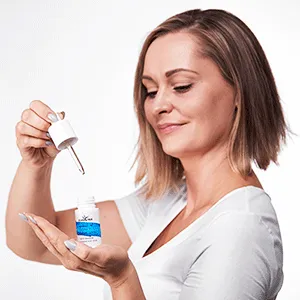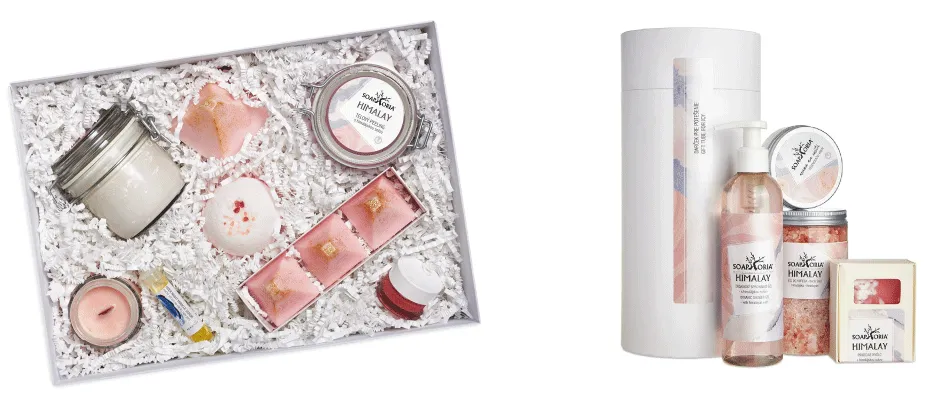Skin cosmetics for summer, skin protection, SPF
SKIN AND UV RADIATION
UV radiation is a type of electromagnetic radiation that occurs in the visible light spectrum. There are two types of UV radiation that affect the skin: UV-A and UV-B.
UV-A radiation penetrates deep into the skin and can cause premature aging of the skin, wrinkles and pigmentation spots. It can also weaken the skin's immune system and increase the risk of some types of skin cancer.
UV-B radiation is stronger than UV-A and causes skin burns. If they are repeated often, it can lead to damage to the DNA of skin cells and increase the risk of melanoma, the most serious type of skin cancer.
With long-term exposure to UV radiation, the skin can lose its elasticity and become dry, rough and wrinkled. UV radiation can also lead to collagen damage, which can cause hair loss and weakened nails.
Therefore, it is important to protect the skin from UV radiation. You can do this by using sunscreen with SPF, wearing hats and long clothing when you're out in the sun, and avoiding the most intense sunlight during the day when the sun is highest in the sky.
If you think you have been exposed to UV radiation, you should monitor your skin and seek medical treatment if unusual changes occur, such as changes in the color, shape, or size of skin lesions. Early diagnosis and treatment can help prevent serious health problems.
HOW TO PROTECT YOURSELF FROM UV RADIATION
Protecting yourself from UV rays is key to maintaining a healthy appearance and healthy skin. UV radiation can cause damage to the skin, including skin burns, premature aging, wrinkles and age spots, as well as an increased risk of skin cancer. Therefore, it is important to take measures to protect against UV radiation, which may include the following steps:
Use sunscreen with SPF
Sunscreens with a high protection factor (SPF) can help protect the skin from UV rays. The SPF of a sunscreen indicates the amount of time you can stay in the sun without burning. It is generally recommended to use sunscreens with SPF 30 or higher and reapply every 2 hours and after swimming or sweating.
Choose sunscreens with physical filters
Sunscreens with physical filters, such as zinc oxide or titanium dioxide, block UV radiation with a physical barrier on the surface of the skin. These sunscreens are often more suitable for sensitive skin and are safer for the environment.
Wear protective clothing
Wearing long sleeves, pants and a hat can help protect your skin from UV rays. There are also special UV protection garments that are made with fabrics that block UV radiation.
Forget the solarium
A tanning bed emits UV radiation that can cause similar damage to the skin as sunlight. Therefore, you should forget about the solarium and avoid artificial tanning.
Avoid the sun during the most exposed hours
The most intense solar radiation occurs between 10:00 and 16:00. If possible, avoid the sun during these hours or choose a shady location to minimize UV exposure.
Use safety glasses
UV radiation can also have harmful effects on the eyes, so it is important to wear protective glasses that block UV radiation.
Watch your skin
It is important to monitor your skin and look for unusual changes, such as new or rapidly growing moles, changes in the color, shape or size of skin lesions. If any unusual changes occur, you should consult a doctor who can provide professional diagnosis and treatment.
Eat healthy and stay hydrated
Proper nutrition and hydration can help keep skin healthy and UV-resistant. Eat foods rich in antioxidants, such as fruits, vegetables and nuts, which can help protect your skin from the damaging effects of UV rays. Sufficient fluids, especially water, are also important to prevent skin dehydration.
Visit a dermatologist regularly
Regular visits to a dermatologist can help identify potential skin problems early and provide recommendations for protection and treatment. A dermatologist may also prescribe medications or cosmetic products that can help protect and repair damaged skin.
Due to the serious consequences of UV radiation on the skin, it is important to take measures to protect and prevent its negative effects. Using sunscreen with an SPF, wearing protective clothing and glasses, avoiding the sun during peak hours, and regular skin care are key steps to protect against UV rays and maintain healthy skin.
HOW TO CHOOSE COSMETICS WITH SPF
When choosing cosmetics with SPF (protection factor), it is important to know the difference between chemical and physical SPF and choose the product that best suits your needs and skin type.
Physical SPF
Physical SPF is based on mineral filters, such as titanium dioxide or zinc oxide, which reflect UV radiation and thus block it. These filters are suitable for sensitive and reactive skin because they do not irritate the skin and are harmless to the environment. Physical filters are not absorbed into the skin, but remain on the surface and thus protect the skin from harmful UV radiation. Their downside is that they can leave a white layer on the skin and some people may feel a greasy or heavy film on the skin.
Chemical SPF
Chemical SPF works by absorbing UV rays and turning them into heat, which is released from the skin. Chemical filters are based on organic compounds that are able to penetrate the skin and absorb UV radiation. These filters are suitable for oilier and normal skin because they absorb well and do not tend to leave a white layer. Their disadvantage can be that they can irritate sensitive skin and some ingredients can be harmful to the environment.
When choosing cosmetics with SPF, it is important to consider several factors, such as your individual needs and skin type. In general, the following factors should be considered when choosing sunscreens:
Sun Protection Factor (SPF): Sunscreens with SPF 30 or higher are recommended for normal outdoor activities. If you spend a lot of time outdoors or have sensitive skin, consider using sunscreens with a higher SPF.
Skin texture and type: Choose sunscreens with different textures and formulations depending on your skin type. If you have dry skin, choose a cream or lotion with moisturizing properties. For oilier skin, it may be better to choose tanning gels or sprays that are quickly absorbed into the skin.
Active ingredients: Some sunscreens may contain active ingredients such as antioxidants or vitamins that help protect the skin from free radicals and other damaging factors. Choose cosmetics with ingredients that suit your skin and its needs.
Water resistance: If you will be swimming or sweating, choose waterproof sunscreens with a high SPF. Waterproof sunscreens provide better protection against UV radiation even if you sweat or swim.
Expiry date: It is important to note the expiry date of the sunscreen and avoid using a cream that is too old. An old cream may have a changed composition and lose its effects, thus not protecting the skin sufficiently from UV radiation.
Choosing the right SPF sunscreen can help protect your skin from harmful UV rays and minimize the risk of skin diseases. Opt for a chemical or physical filter depending on your skin type and individual needs. Before buying, read the product description and look at its ingredients to be sure that SPF cosmetics suit your needs and skin.
SOAPHORIA AND SPF COSMETICS
Soaphoria is a brand of natural cosmetics that offers various skin care products. In addition to other products, it also offers sun creams with SPF, which are based on mineral filters.
Soaphoria sunscreens are suitable for sensitive and reactive skin because they contain natural ingredients and mineral filters that do not irritate the skin. The creams have a high protection factor (SPF 30 and above) and are waterproof, so they provide long-lasting protection against UV radiation.
Soaphoria sunscreens are also rich in moisturizing and regenerating ingredients such as cocoa butter, shea butter and oils that help keep the skin hydrated and protected from external influences. In addition, they do not contain any harmful ingredients such as parabens, silicones or synthetic dyes, so they are gentle on the skin and the environment.
Soaphoria sunscreens are suitable for all skin types and are an ideal choice for those who prefer natural and organic products. In addition to sunscreens, Soaphoria also offers other skin care products that are also based on natural and organic ingredients.
If you are looking for cosmetics with SPF that is based on natural ingredients and does not contain any harmful ingredients, Soaphoria sunscreens are a great choice for you.











































